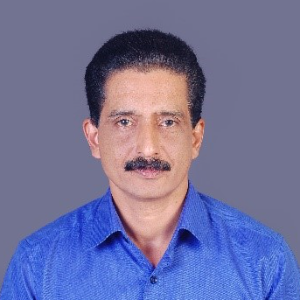Title : Precision farming - A scientific approach for enhancing soil and crop health
Abstract:
Precision agriculture is defined as the art and science of utilizing advanced technologies for enhancing crop production and minimizing potential environmental pollution / degradation. Precision farming, which is also referred to as hi-tech farming, is known as technology enabled, information based and decision focused method of farming. which uses the inputs most efficiently and judiciously to maximize productivity and profitability with minimum impact on soil and environment. The objective of precision farming is to match agricultural inputs and practices to localized conditions within a field to do the right thing in the right place, at the right time and in the right way. Agriculture is the largest user of water, which consumes about 80% of the exploitable water resources. The major components of precision farming include micro irrigation, fertigation, plastic mulching, crop geometry and integrated pest and disease management.
To bring more area under irrigation, it has become necessary to introduce micro irrigation for economizing the use of water and to increase productivity per unit of water. Micro irrigation is the slow and regular application of water directly to the root zone of the plants through a network of economically designed plastic pipes and low discharge emitter. It can be considered as an efficient irrigation method, which is economically viable, technically feasible and socially acceptable. It enables watering the plants at the rate of its consumptive use thereby minimizing the losses such as deep percolation, runoff and soil evaporation. Simultaneous application of soluble fertilizers (plant nutrients) and water through an irrigation system is called fertigation. It is an eefficient and precise method of application of inputs and provides good environmental stewardship. Mulching refers to the practice of covering the plant basin with some materials to prevent the evaporation loss. In precision framing it is always recommended to go for plastic mulching, which can enhance the water use efficiency and fertilizer use efficiency. The plastic mulching in addition to prevention of evaporation loss, helps to maintain the soil structure and regulates the soil temperature, which is essential for effective microbial activity. Plastic mulching completely eliminates the weed growth and prevents the leaching of nutrients during heavy rainfall. Crop geometry refers to the practice of maintaining optimal crop to crop and row to row spacing, in order to accommodate maximum number of seedlings in the available land area. It is also referred to as high density planting. Integrated pest and disease management is an ecosystem-based strategy that focuses on long-term prevention of pests or their damage through a combination of techniques such as biological control, habitat manipulation, modification of cultural practices, and use of resistant varieties.
Precision farming offers a variety of potential benefits in profitability, productivity, sustainability, crop quality, food safety, environmental protection, on farm quality of life and rural economic development. This scenario forces us to think about efficient irrigation system like micro irrigation combined with fertigaion to have more crop per drop. Hence precision farming can be considered as the future of energy, soil and conservation and food security.


